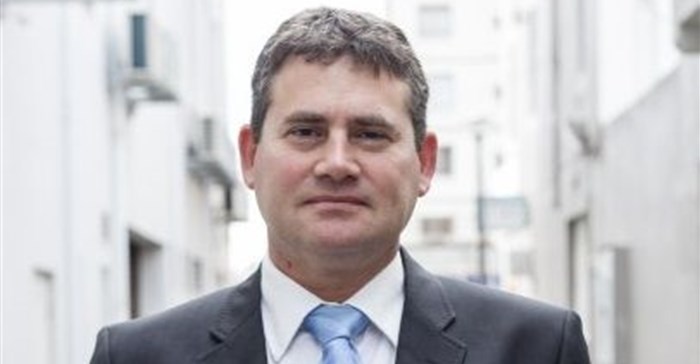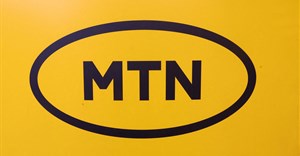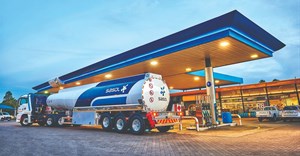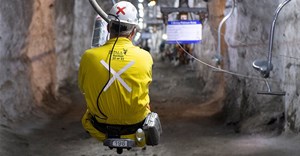Trending




 Sabre EMEA 2024 Awards: Razor PR, Retroviral top SA agenciesDanette Breitenbach
Sabre EMEA 2024 Awards: Razor PR, Retroviral top SA agenciesDanette Breitenbach
Elections 2024
VAT trap could impact on your earnings

“This obligation to register is measured on the value of taxable supplies rather than actual amounts received, and will apply regardless of the entity through which the business is carried, i.e. sole proprietorship, company or trust. The impact that this compulsory VAT registration will have on a person will depend largely on the kind of business or service being offered,” says Jeremy Burman of Private Client Financial Services, a division of Private Client Holdings.
Businesses and professionals such as IT support companies and accountants who render services to clients who are themselves VAT vendors, a compulsory registration should not have any significant adverse affect on their profitability, apart from the additional administration costs involved in meeting the VAT reporting requirements. “The business will be obligated to charge an additional 15% on all invoiced fees and pay this over to the South African Revenue Service (Sars), leaving their underlying revenue unchanged. The VAT registered client can then claim this 15% back as input VAT, leaving their effective cost unchanged.”
Income going backwards
However, Burman cautions that for persons like doctors and dentists who largely service individuals in their private capacity, the effect on their business may be significant.
“VAT is an indirect tax meaning that it is a tax charged by the vendor but ultimately borne by the client who pays the higher VAT inclusive price. With VAT registration, the vendor will face the tough decision of either increasing fees in line with the legislated VAT rate of 15%, which many clients may not be willing or able to afford or accepting a decrease in net revenue through implementing a lower percentage increase.”
“For example, a professional who charges an hourly rate of R 2,000 will be required to increase their fees to R 2,300 (R 2,000 x 1.15) if they want their earnings to remain unchanged. The VAT portion of R300 will be payable to Sars and they will retain R2,000. However, where a professional is aware that their clients will not accept such a large increase and any such increase would result in losing business, they may choose to share the burden of the VAT charge – increasing fees by only 8% (for example)and charging a VAT inclusive fee of R 2,160 (R 2,000 x 1.08) of which they would be obligated to pay R281 (R 2,160 x 15/115) to Sars, leaving their net hourly rate at a reduced amount of R 1,871.
“Coupled with this, certain professionals, such as doctors in private practice, may be limited to prescribed rates for services and are therefore unable to pass on any increase to their clients, resulting in a significant decrease in earnings from date of registration,” says Burman.
Claiming input VAT
On the upside, for those persons who are required to register as VAT vendors, input VAT may be claimed on taxable supplies or services purchased from a VAT vendor for business purposes. Examples of purchases on which input VAT may be claimed include rent, communication costs, professional subscriptions, bank charges, stationery, equipment purchases etc. However, input Vat claims are prohibited on certain business purchases, most notably entertainment expenses, staff welfare, petrol, car hire costs, and acquiring passenger motor vehicles.
“VAT returns are generally submitted every second month with VAT due for a two month period, being payable on the last business day of the following month. Most vendors will be registered on the invoice basis which requires them to pay VAT on the amounts invoiced in the VAT period (regardless of whether these invoices have yet been settled).
“This may cause cash-flow issues for vendors whose customers are slow with payments,” warns Burman. “There is some small relief granted in that the vendor may also claim input VAT on supplier invoices received in the VAT period and not yet settled. A person who practices as a sole proprietor and who has annual taxable supplies of less than R 2.5m may apply to be registered on the cash basis for VAT purposes. This will allow them to pay output VAT only on amounts settled in the VAT period (and conversely only claim input VAT on supplier invoices actually paid in the VAT period).”
It is also worth noting that VAT registration attaches to a person. Therefore, if a person carries on two separate businesses and he is registered as a vendor for one, he will be required to charge VAT on invoices raised in the other. For example, a VAT registered architect who adds interior decorating to their services offered will be required to charge VAT on fees for this service as well. “Section 50A of the VAT Act also allows Sars to treat two separate businesses as one for VAT purposes when a person has split his business between two or more entities for the main purpose of remaining below the threshold that triggers compulsory VAT registration,” says Burman. “And if a person fails to register as a VAT vendor timeously, submits returns late, or keeps inadequate VAT records, this will result in penalties and interest being payable to Sars.”
If you are a person carrying on a business whose income over the last 12 months has exceeded R1m or is reasonably expected to do so in the coming months, it is recommended that you speak to a registered tax practitioner who can provide the necessary guidance on meeting your VAT registration obligations and minimising the impact on your business. This will help to ensure that costly mistakes are avoided.











